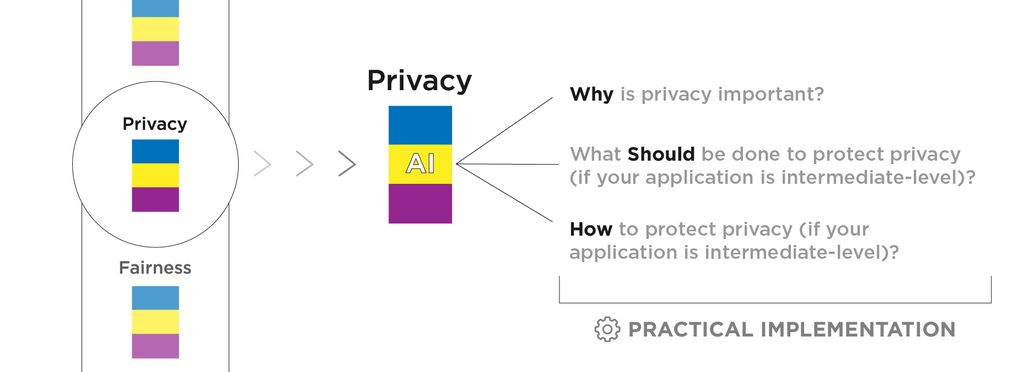These tools and metrics are designed to help AI actors develop and use trustworthy AI systems and applications that respect human rights and are fair, transparent, explainable, robust, secure and safe.
Ethical Problem Solving

The Ethical Problem Solving (EPS) framework is a comprehensive approach designed to bridge the gap between ethical principles and their practical implementation in artificial intelligence (AI) systems. EPS operates within an Ethics as a Service (EaaS) framework, focusing on human-centered evaluation and guidance.
EPS consists of two main stages: evaluation and recommendation, which are facilitated by various tools and methodologies. The evaluation stage begins with a pre-algorithmic impact assessment (pre-AIA), where the potential impact of an AI system is preemptively gauged. This initial assessment informs subsequent Algorithmic impact assessments (AIAs), covering data protection, privacy, antidiscrimination, and consumer rights. These AIAs utilize legally binding standards to evaluate AI systems' implications objectively.
Following the evaluation stage, EPS involves ethical framing, where human evaluators classify the system's impact based on ethical principles and levels of recommendation. This is followed by the recommendation stage, which utilizes the WHY-SHOULD-HOW methodology. In the WHY step, the relevancy of each ethical principle is explained, highlighting paradigmatic cases. The SHOULD component provides metric recommendations for each principle, while the HOW component offers practical tools and strategies for implementation.
Finally, the EPS framework provides various tools to assist in the ethical evaluation and implementation of AI systems. These tools include multiple surveys for AIAs and ethical troubleshooting to ensure a human-centric approach. Additionally, the framework offers normative guidance and practical tools tailored to each ethical principle, aiding developers in addressing potential ethical concerns.
About the tool
You can click on the links to see the associated tools
Tool type(s):
Objective(s):
Impacted stakeholders:
Target sector(s):
Country/Territory of origin:
Lifecycle stage(s):
Type of approach:
Maturity:
Usage rights:
Target groups:
Target users:
Stakeholder group:
Validity:
Enforcement:
Benefits:
People involved:
Required skills:
Technology platforms:
Tags:
- ai governance
- ai compliance
Use Cases
Would you like to submit a use case for this tool?
If you have used this tool, we would love to know more about your experience.
Add use case



 Partnership on AI
Partnership on AI


























